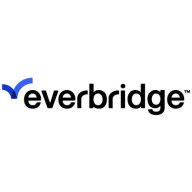

xMatters and Opsgenie both compete in the incident management and notification solutions category. xMatters seems to have the upper hand due to its broad integration and automation capabilities, particularly with ServiceNow, offering efficiency and flexibility.
Features: xMatters offers comprehensive integrations and automation, especially with ServiceNow, enabling efficient incident resolution and scheduling. Its REST API enhances flexibility by streamlining notifications and improving response times. Meanwhile, users appreciate Opsgenie for its user-friendly setup supporting both cloud and on-premise environments, with noted strong integration with Jira Service Management.
Room for Improvement: xMatters could improve reporting capabilities and integration flexibility, focusing on UI intuitiveness for dynamic teams. Users also express the need for better logging and enhanced integrations with external tools like Slack. Opsgenie may benefit from expanded cloud integrations, simplified user access, and improved reporting capabilities and API functionalities.
Ease of Deployment and Customer Service: xMatters supports various cloud environments, offering outstanding technical support, which users frequently commend for responsiveness. Opsgenie provides efficient technical support across a wide array of cloud environments. Both products receive praise for customer service, yet xMatters is notably highlighted for its exceptional and personable support.
Pricing and ROI: xMatters, though higher in license costs, offers strong ROI by reducing incident resolution times significantly. Its pricing based on active user licenses adds value for organizations relying on automated notifications. Opsgenie's pricing is more affordable, offering flexible tiers, especially when bundled with other Atlassian products, though it can become expensive with scaled usage.
| Product | Market Share (%) |
|---|---|
| Opsgenie | 9.4% |
| xMatters | 5.8% |
| Other | 84.8% |


| Company Size | Count |
|---|---|
| Small Business | 3 |
| Midsize Enterprise | 5 |
| Large Enterprise | 6 |
| Company Size | Count |
|---|---|
| Small Business | 4 |
| Midsize Enterprise | 2 |
| Large Enterprise | 24 |
Users are empowered to manage their contact details and notification preferences in a single location, hence the administrators don't have to maintain this information at each application. OpsGenie is a cloud based service with reliable, distributed architecture that is replicated in multiple data centers, and monitored around the clock. The lifecycle for each alert, notifications, actions taken by users, are recorded and reported to enable admins to easily analyze what happened. No more wasting time, digging up log files. No more finger pointing.
Most enterprises employ multitude of tools for IT management: for monitoring, ticketing, configuration and change management, etc. Although each of these tools may be individually capable of sending notifications via email or SMS, it is a burden for administrators to maintain the same information in each of these multiple, disparate systems.
OpsGenie enables organizations to consolidate notification management into a single management system. OpsGenie enables users to maintain their own contact details and preferences in one place, eliminating duplication of data, reducing administrative overhead.
xMatters, an Everbridge company, is a service reliability platform that helps DevOps, SREs, and operations teams rapidly deliver products at scale by automating workflows and ensuring infrastructure and applications are always working. The xMatters code-free workflow builder, adaptive approach to incident management, and real-time performance analytics all support a single goal: deliver customer happiness.
To learn more, request a demo.
We monitor all IT Alerting and Incident Management reviews to prevent fraudulent reviews and keep review quality high. We do not post reviews by company employees or direct competitors. We validate each review for authenticity via cross-reference with LinkedIn, and personal follow-up with the reviewer when necessary.